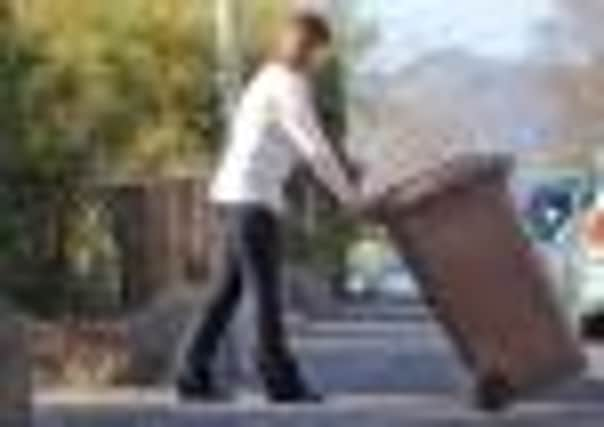Concerns over composting as study reveals health risks of recycling organic household waste


However, there are fears that the bioaerosols produced by such waste could be damaging to health.
In Scotland, sites that deal with organic waste have multiplied in recent years with some commercial operators able to cope with up to 40,000 tonnes on sites among the largest in the world.
Advertisement
Hide AdAdvertisement
Hide AdGreen waste is shredded down, laid out in open rows and turned regularly, reaching high temperatures. After several weeks, the waste is filtered to remove any rubbish and sold as compost.
Food waste is mixed with lime and woodchips and left to rot down in large containers before it too is sold as a soil improver.
Bioaerosols can contain fungal spores and bacteria are harmful to human health, and some people seem to be more susceptible than others.
According to the Health Protection Agency, complaints from people exposed to the particles include breathing problems, headaches, nausea and fatigue.
They could cause infection in people with low immune systems.Those working at plants and those living within 250 metres of the area could be most at risk.
Food waste recycling may pose less of an environmental risk because it takes place in closed containers – however it is still put out in the air to dry once it has been heat treated.
The Scottish Environmental Protection Agency (SEPA) says the shredding and turning process involved in treating green waste may “give rise to bioaerosol emissions”. However, so far there has been a lack of scientific research on the problem and SEPA is treating both processes with equal concern.
The move poses a problem for SNP ministers who have previously backed Scottish commercial composting schemes.
Advertisement
Hide AdAdvertisement
Hide AdThere are over 100 sites across Scotland which take leftovers from households and restaurants and out-of-date stock from supermarkets, as well as green waste from gardens and agricultural businesses.
The advantage of large-scale composting is that if organic waste is put in landfill sites it rots down and produces methane, which is particularly damaging to the environment. Commercial composting has until now been seen as an ideal solution because it takes large volumes of waste and turns it into soil improving compost.
However, potential risks are emerging. A study by the Environment Agency and Cranfield University, and backed by the UK Government, has already found that among 44 sites examined in England, only eight had produced adequate risk assessments on protecting the surrounding area from bioaerosols.
Studies of workers at composting sites have also shown that there is a risk of respiratory infections from organisms that thrive in decaying organic matter and diseases that are a common cause of breathing difficulties among farm workers.
Yesterday, environmentalists backed the SEPA investigation. Green MSP Patrick Harvie said: “More research in this area is welcome as commercial composting has an increasing role to play if we are to become a zero-waste country. However, it’s important that agencies are properly supported and funded to do this research and SEPA have been handed multi-million pound cuts by the SNP that will impact on their capacity to protect our environment.”
Jeremy Jacobs, managing director of the trade body for green waste recycling, the Association for Organics Recycling, said: “There is no reported evidence of a significant increase in ill health in residents near composting sites. The lungs of a healthy person are capable of being exposed to relatively large concentrations of micro-organisms without ill effect. There are measures we can take to reduce bioaerosols such as the way we manage the material, the frequency of turning and the moisture levels.”
One major composting plant is Keenan Recycling, which is based in New Deer, near Aberdeen.
The business, launched by brothers Grant and Gregor Keenan in 2001 and endorsed by First Minister Alex Salmond, transforms food and garden waste into compost at its award-winning £3.2 million facility.
Advertisement
Hide AdAdvertisement
Hide AdGrant Keenan said: “We are monitored and regulated for levels of bioaerosols as there is a requirement for us to manage our levels. They are only released at certain times, such as turning the compost and this is kept monitored and controlled.”